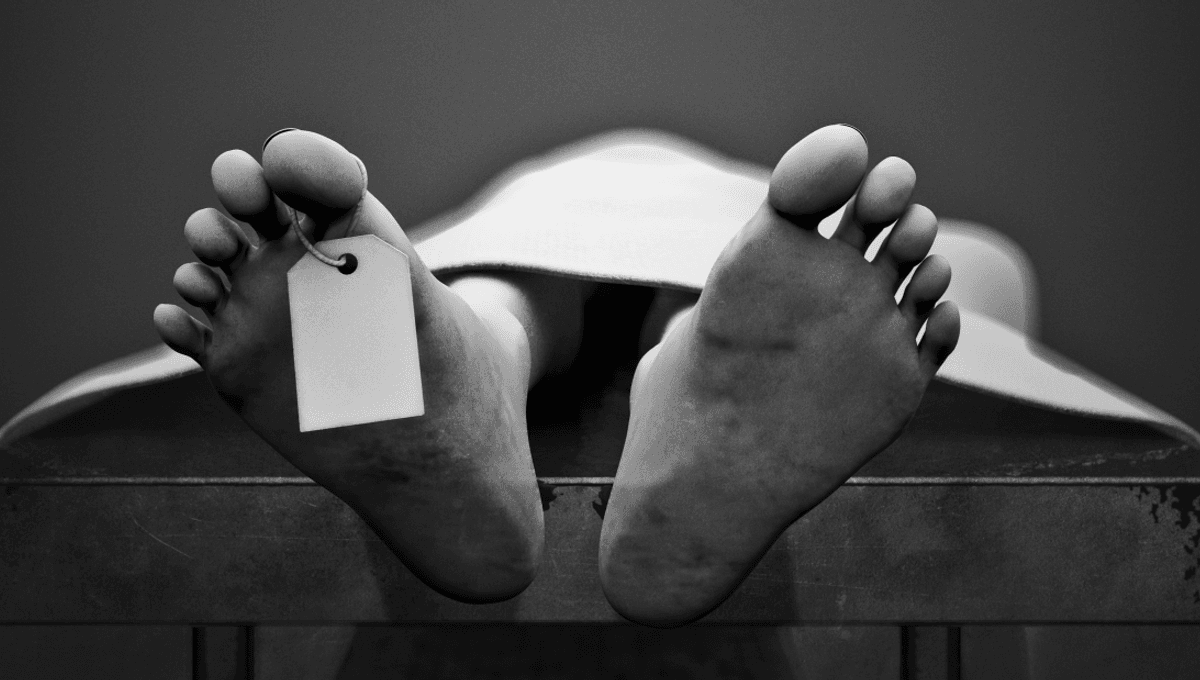
Some incredible things take place in the human body after we die, especially if we happen to kick the bucket in the great outdoors. Research has revealed how corpses seem to share a universal community of microbes that guide us on the path to skeletonization, something known as the decomposition ecosystem, and it brings with it all sorts of hot, sludgy, and insect-driven activity.
There remain, however, some myths about what happens to our bodies when we die. If you were expecting to go out with a cracking set of nails, or have heard one of a thousand second-hand stories about people sitting up in the morgue, we’re afraid it’s bad news – but it is really, really interesting.
Bodies occasionally sit up in morgues
Rigor mortis, the phenomenon whereby our muscles stiffen after death, is real. This occurs because the adenosine triphosphate (ATP) needed to break down actin-myosin filaments in muscle fibers becomes depleted. It happens everywhere simultaneously, but some muscles are more noticeable to a living third party than others because of their placement or size.
The face is typically first, becoming visibly stiff around two hours after death, then the hands and arms become more noticeable, followed by the lower limbs. It takes six to eight hours to be complete, and then endures for 12 until proteolysis starts to break all the actin-myosin bonds and we go floppy again – a phase, humiliatingly, known as “secondary flaccidity”.
As the Institute Of Human Anatomy explained, to sit up like that requires a fair few muscle groups – you’ve got your abs and your hip flexors, and those things aren’t going anywhere if your brain is too dead to be sending out the necessary messages from your frontal lobe, down your spine, and out to the relevant muscles.
But what about rigor mortis? Could that contract us into a seated position?
Our muscles are able to complete big movements by forming myosin-actin bonds that break, only for another bond to form further along in a sort of snagging mechanism. That can’t happen without ATP to break the initial bond, so though the muscles are contracting in rigor mortis, they’re not doing so in a way that could facilitate wild movements, like sitting up in a morgue.
Rigor mortis is an interesting one, as it can be useful in criminal investigations. In 2011, a body was found with rigor mortis “in an unusual position,” reads a case study. “The dead body was lying on its back with limbs raised, defying gravity. Direction of the salivary stains on the face was also defying the gravity. We opined that the scene of occurrence of crime is unlikely to be the final place where the dead body was found. The clues were revealing a homicidal offence and an attempt to destroy the evidence.”
Busted.
Your hair and nails carry on growing after you die
We can see why this one carried so far as it creates quite the mental image, but as anthropologist William Maples said, “It is a powerful, disturbing image, but it is pure moonshine. No such thing occurs.”
The hair that we can hold in our hands is made of dead cells, a long chain that goes all the way back to a follicle in our skin. There, at what’s known as the hair root, tiny blood vessels keep the base alive so it can continue creating new hair cells, with each layer pushing those that came before it further out until they’re tumbling down our backs Rapunzel style.
It’s a neat trick, but one that stops when we die because blood no longer circulates around the body – blood that’s crucial to keep that hair root alive and productive, and the same is true of nails. As for why people might think they keep growing, it could be because of what happens to our skin.
Dying doesn’t do wonders to our skin, as drying and desiccation cause it to retract, pulling back from the base of our hair and nails. This can make them look more prominent – nails especially, as we’re used to seeing them in the context of a living hand. But they haven’t grown, the skin has just shrunk.
So no sweet mani on your way to the great beyond, I’m afraid, but if you are curious to know what happens when you die, Lecturer in Forensics at the University of Kent Dr Devin Finaughty told us all about it at CURIOUS Live 2023. You can also catch a fresh talk on how insects help us solve crimes at this year’s CURIOUS Live virtual event, taking place on May 31. Sign up today for your free ticket to this festival of science!
Source Link: Fantastic Corpse Myths And How To Debunk Them